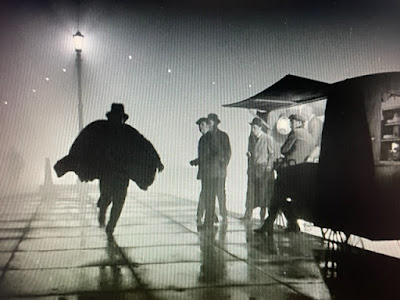I don't care much for monster movies as a genre any more. When I was young we used to be enthralled by the genre. In the early Sixties I would use my allowance money to buy Famous Monsters of Filmland, a monthly mag that covered the burgeoning horror film industry.
Some of the most memorable films of that era for me were Frankenstein, Son of Frankenstein, The Hunchback of Notre Dame, Phantom of the Opera, Dracula, The Wolf Man, the Creeper and, yes, Doctor Jekyll and Mister Hyde.
As children we enjoyed these horror flicks. They were engaging and generated a sufficient amount of fear and drama to stimulate our emotions. But the philosophical underpinnings of many of these films were lost on us. It wasn't until I read Mary Shelley's Frankenstein that I saw that story in a different light.
When I was a kid we called the monster Frankenstein. It wasn't clear that this was Dr. Victor Frankenstein's creation. Mary Shelley wrote the novella while in her late teens. It wasn't written to merely be a monster story or an entertainment, but rather it was addressing ethical issues which are still relevant today.
 |
| Spencer Tracy as Mr. Hyde, on the run. |
This notion seems rather unsurprising to most of us, if we're honest. Nevertheless, we have a tendency to label people as good or bad. Why do we do this? Do we label people in order to write them off?
The story has been translated to film more than a hundred times. The 1941 version I watched starred Spencer Tracy as Dr. Jekyll. Lana Turner is the woman from a high class family whom he is preparing to marry, and Ingrid Bergman is a barmaid. The script for this version was nearly identical to the 1931 version with Frederic March. The earlier version was made before Hollywood got stricter with the Hays Code. In that version the Ingrid Bergman character was a prostitute, not a barmaid. In either version the point is driven home that good and evil are adversaries within each of us.
In the film, Dr. Jekyll is a professional doctor whose interests lie in the realm of research more than in serving the community. This thought makes me think of a psychology professor I had in college who washed his hands 40 times a day. He said he became interested in psychology because of his phobias. Perhaps a similar motivation was a driving force in Dr. Jekyll's studies.
Jekyll's personality is gentle and not bombastic. His alter ego Mr. Hyde, however, is an expansive sadistic character. His bad behavior isn't shoplifting.
Lana Turner and Ingrid Bergman each turn in good performances as the soon-to-be bride of Dr. Jekyll (Turner) and the barmaid Hyde gets obsessed with (Bergman). Bergman does a superb job in a complex role that speaks to the heart of every woman in a relationship with a disturbed and dangerous man. When Mr. Hyde cross-examines her, she fights to hide her fear. This kind of reality is scarier than any horror film. Horror films are over in two hours, but an abusive relationship can cause anguish for years.
As for Dr. Jekyll, is there a warning here about experimenting with mind-altering elixirs? The side effects may be more disturbing than one realizes. He comforts himself with the illusion that he's in control, but in the end it's evident he's set in motion events that are out of his control. This false self-confidence one of our common flaws, is it not?











No comments:
Post a Comment